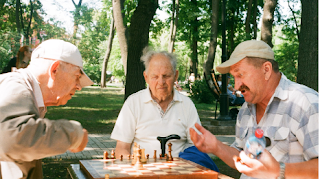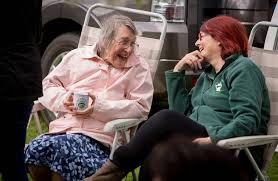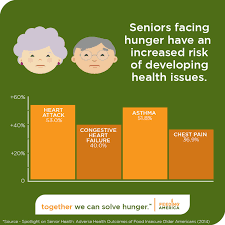Although this topic is one we have talked about several times before, it bears another examination. You can read them here and here and even here. You can read each there. Each one addresses this issue from a different focus, so you might enjoy reading them.
Today, we're exploring this topic from the perspective of ways to enhance our lifespan. As seniors, we're not just interested in adding years to our lives, but life to those years. Let's review some practical ways to boost our longevity and enjoy our aging journey with vitality and joy.
1. Embrace a Balanced Diet: A diet rich in fruits, vegetables, whole grains, and lean proteins is essential. These foods are the building blocks for a healthier, longer life. Remember, moderation is key, and the occasional indulgence is part of the joy of living!
2. Stay Physically Active: Exercise is a lifelong ally in the quest for longevity. Whether it's walking, swimming, yoga, or dancing, staying active can improve your quality of life. It's about consistency, so find an activity you love and make it a part of your routine.
3. Cultivate Strong Social Connections: Maintaining social connections is crucial as we age. Engage with your community, reconnect with old friends, or make new ones. A hearty laugh with friends can be just as important as any medicine.
4. Prioritize Preventive Health Maintenance: Regular health checkups, monitoring cholesterol levels and blood pressure, and following guidelines for body fat percentage, lean body mass, and bone density are crucial. Staying on top of your health can make a significant difference in treatment outcomes and peace of mind.
5. Understand the Impact of Lifestyle Choices: Adopting healthy habits at different ages can significantly extend lifespan. For instance, adding just one healthy behavior at age 40 can provide an additional 4.5 years of life. These include exercise, a healthy diet, stress management, and quality sleep.
6. Quality Sleep and Its Importance: Getting 7-8 hours of sleep each night is vital. Quality sleep rejuvenates the body and mind, playing a critical role in overall health. Avoid excessive sleep, which can be linked to depression, low physical activity, and undiagnosed health conditions.
7. Keep Your Mind Active: A sharp mind is a key component of a long, fulfilling life. Challenge your brain with puzzles, learn a new skill, or indulge in your favorite hobbies. Keeping mentally active helps ward off cognitive decline.
Longevity is not just about living longer; it's about living better. By focusing on these key areas, including preventive health maintenance and understanding the impact of our lifestyle choices, we can improve our lifespan and enjoy our aging journey with vigor and joy. Remember, every day is a gift, and it's never too late to start making changes that can enrich your life.














































